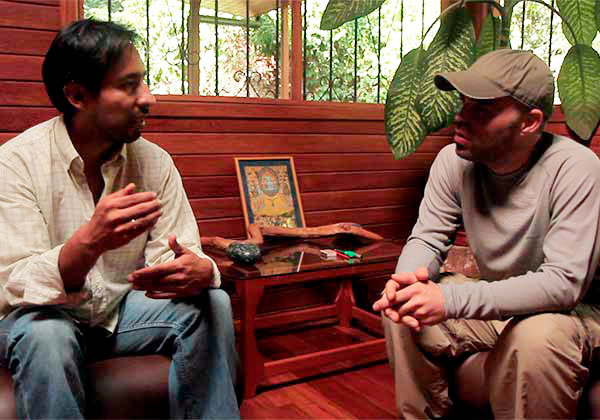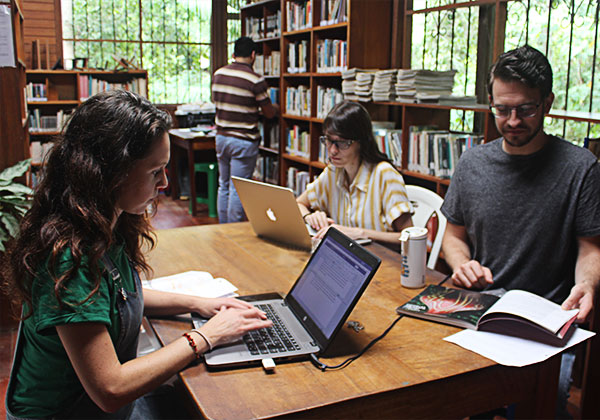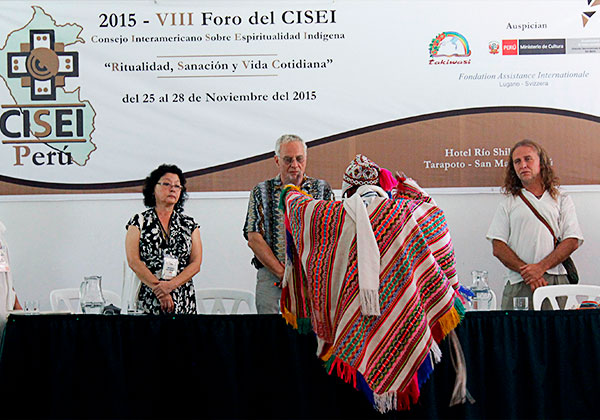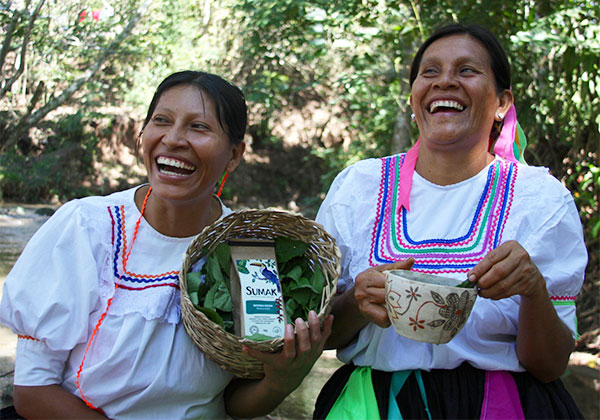Who We Are
Takiwasi, or "The Singing House" in Quechua language, is a non-profit civil association (NGO), located in the city of Tarapoto, in the Upper Peruvian Amazon region. It was created in 1992 as result of a research work started in 1986 on the thousands-years-old practices of Traditional Amazonian Medicine, in one of the regions of Peru with the greatest richness in terms of ancestral knowledge related to the use of medicinal and sacred plants that contribute to physical, mental and spiritual healing.
Since its inception, Takiwasi has been dedicated to improving the health conditions of the population and to the conservation of the environment, developing innovative techniques and intervention models that preserve traditional Amazonian knowledge and articulate it with modern health science, always taking into account therapeutic, scientific, ecological, cultural and humanitarian concerns.
Takiwasi is considered to be the oldest and most renowned institution in combining the use of psychotherapy and medicinal plants for the treatment of mental health. With more than three decades of experience in this field, our model that harmoniously balance medicine, psychology and spirituality, has been the focus of study for some 100 international research projects, articulating an interdisciplinary academic community integrated by scientific institutions of global excellence.
The Takiwasi Center contributes to the international recognition of traditional indigenous Amazonian medicine as a Cultural Heritage of Peru.
Luis Alberto Vásquez Vásquez, director of the San Martin bureau of the Ministry of Culture
Areas of Work

Treatment
The Takiwasi Center is a therapeutic community legally recognized by the Ministry of Health of Peru. Our world-class, low-cost and efficient therapeutic protocol allows us to address drug addiction and mental health disorders with great results. The multidisciplinary team is composed of psychologists, ergotherapists, doctors and healers and guarantees a holistic approach to the human being. In addition to residential treatment for addicts, we offer therapeutic spaces (Retreats/Diets) open to all people who seek to heal emotional/psychological/spiritual wounds and embark on a journey of personal development.

Research
This is achieved through collaborations with international centers, publication of scientific articles in specialized magazines, participation in conferences and organization of congresses. In order to guarantee the adequate development of the research within the Center, we have developed a computerized system for the collection, storage, systematization and management of therapeutic and clinical information. The research papers and theses produced are available through our collection of digital documents.

Indigenous world
There is a growing and increasingly urgent need to establish intercultural bridges between the indigenous-mestizo world and the western world. Both worlds have their own cultural codes and require mixed entities that can ensure a translator's role for the establishment of a fruitful dialogue. Through our therapeutic practice, research, the organization of events and the generation of a debate in an open and dialoguing spirit, we try to build bridges between representatives of different cultures, spiritualities, continent, wisdoms and knowledges.

BioTrade
Our Natural Products Laboratory promotes the generation of added value in the sustainable use of Amazonian biodiversity resources, as a strategy to combine the conservation of the environment and the inclusive development of the native communities that are our main allies. We accompany and train indigenous communities in the sustainable management of natural resources, guaranteeing to them a fair payment for the collection of medicinal plants and empowering them to strengthen control over their ancestral knowledge, in addition to promoting the creation of their own brands.
The innovative and promising nature of this approach has attracted our attention, generating a very fruitful and highly impactful scientific collaboration. The willingness of the Takiwasi Center to welcome researchers and create the conditions for an appropriate scientific environment for the development of studies of the highest academic level should be highlighted.
Manuel Almendro, PhD in Psychology, clinical psychologist and member of the European Federation of Psychology Association
Our Achievements
Takiwasi is one of the pioneers in the application of Ayahuasca and Amazonian medicinal plants of ancestral use (known as teacher plants) for the treatment of mental health. The institution has contributed greatly to the internationalization of this knowledge and has been taken as a model and example for its progresses in scientific research and clinical practice. One of the most outstanding achievements in this area has been the Declaration of National Cultural Heritage to the traditional uses of the Ayahuasca, through resolution No. 836 / INC by the Peruvian Institute of Culture.
The groundbreaking treatment model for addiction has led the institution to be awarded by the corresponding government agency of Peru (DEVIDA) and to become a national (CENSI - National Center for Intercultural Health) and international reference with numerous awards and recognitions obtained. Several governmental institutions in Latin America have contacted Takiwasi to establish similar proposals in their countries.
The Takiwasi Laboratory has been recognized on several occasions as "Successful BioTrade Experience" by organizations such as GEF-UNDP and the United Nations, for promoting a business model that is fair and sustainable.
Under the leadership of physician Jacques Mabit, Centro Takiwasi has established the world’s first treatment center utilizing the native plant decoction ayahuasca in the treatment of drug addiction.
Charles S. Grob, MD, professor of Psychiatry and Pediatrics and Director of the Division of Child and Adolescent Psychiatry at Harbor-UCLA Medical Center
Legal liability notice
The Takiwasi Center does not train healers (or shamans), nor does it have branches or allocate franchises, therefore no person or organization can claim a formal affiliation or relationship with Takiwasi. Takiwasi recognizes only one organization as the official representative for the French-speaking world and Europe, the Association "La Maison Qui Chante" legally established in France, which autonomously accept responsibility over its practices. The data transmitted by Takiwasi in its newsletter, emails, social networks or web page are exclusively for informative purposes and do not represent any endorsement. All the therapeutic activities of the Takiwasi Center are carried out at its headquarters located in the city of Tarapoto, Peru, so Takiwasi accept no responsibility for therapeutic activities carried out outside this space.
Rescuing the ancestral knowledge associated with Traditional Medicines

Where We Are

The Takiwasi Center is located in the outskirts of the city of Tarapoto (population 210,000 aprox.), in the region of San Martin, in the Peruvian Upper Amazon area, 800 kms northeast of Lima, the capital of Perú. This area is known worldwide for its great biodiversity and for being the historical epicenter of Traditional Amazonian Medicine.
Tarapoto
Tarapoto, also known as the “City of Palm Trees”, is a thriving city located at an altitude of 350 meters above sea level in the high jungle plateau. Because of its height and the mountains that surround the city, Tarapoto has a cooler climate than the other cities of the Peruvian Amazon. It is one of the main tourist and commercial cities of the Peruvian Amazon.
Tarapoto is connected by flight through the airport "Cadete FAP Guillermo del Castillo Paredes" that has a large and modern terminal. The airport provides daily flights to the cities of Lima (approximately 1 hour flight), Pucallpa and Iquitos.
The journey by land is also comfortable, either by car or commercial bus, thanks to the roads that connect Tarapoto, on the one hand, with the coast of Peru and the city of Chiclayo, and on the other hand with the center of the country and the cities of Tingo Maria and Huánuco.
Contact Form
×A confirmation e-mail has been sent to your account.